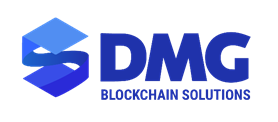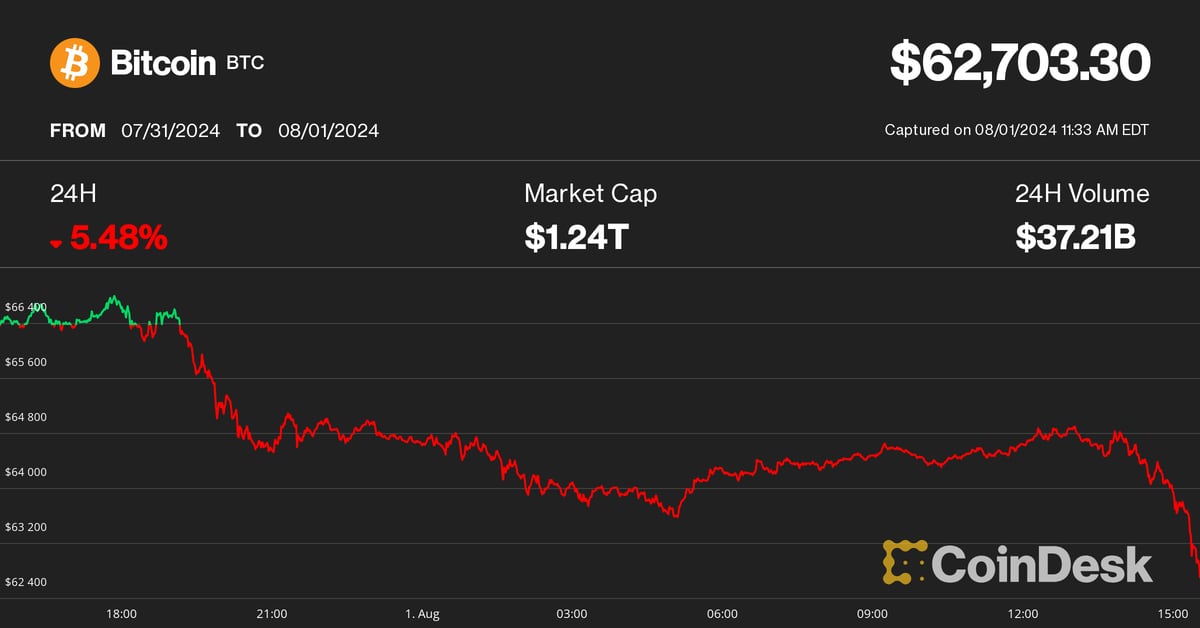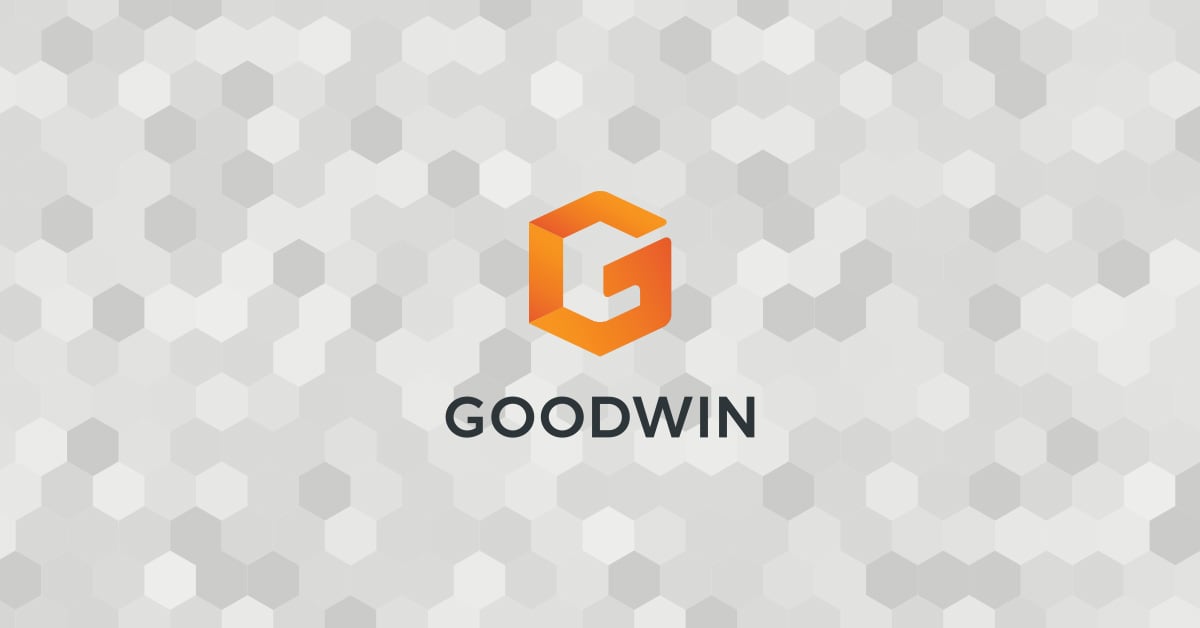Blockchain
DMG Blockchain Solutions announces May operating results

VANCOUVER, British Columbia, June 5, 2024 (GLOBE NEWSWIRE) — DMG Blockchain Solutions Inc. (TSX-V: DMGI) (OTCQB US: DMGGF) (FRANGFURT: 6AX) (“DMG” or the “Company”), a Vertically integrated blockchain and data center technology company, announces its operating results for May 2024:
May 2024 Highlights:
- Bitcoin mined: 23 BTC
- Hashrate: 0.94 EH/s
- BTC Balance: 449 BTC
In May 2024, DMG mined 23 bitcoins with an average monthly realized hashrate of 0.94 exahash per second (EH/s). These results demonstrate the Company’s ongoing commitment to optimizing its mining operations and increasing efficiency. DMG’s bitcoin balance as of May 31, 2024 is 449 BTC, reflecting our strategic approach to growth and asset management. This reserve positions DMG favorably for future opportunities to deploy its capital.
As an operational update, DMG now forecasts that its Bitmain T21 mining fleet is expected to generate 0.86 EH/s operational in July 2024, lagging previous guidance in late June. The Company expects to have its T21 miners fully installed in its mining containers by the end of June or shortly thereafter. However, the miners will not be powered until they are connected to the Company’s distribution line. Extended lead times for interconnecting components are delaying the commissioning of new mining containers. Combined with its new fleet of fully energized T21s, the Company expects its total fleet hashrate to generate approximately 1.7 EH/s with a mixed fleet efficiency of approximately 23 J/TH.
Assignment of stock options
DMG also announces that it has assigned n. 1,406,090 stock options (“Options”) to employees and directors of the Company. The Options are exercisable for a period of five years at a price of $0.61 per share and will vest at the rate of 25% on each of the six, twelve, eighteen and twenty-four month anniversaries from the date of grant.
About DMG Blockchain Solutions Inc.
DMG is an environmentally friendly, vertically integrated blockchain technology and data center company that manages, operates and develops end-to-end digital solutions to monetize the blockchain ecosystem. DMG’s sustainable businesses are segmented into two business lines under the Core and Core+ strategies and unified through DMG’s vertical integration.
For more information on DMG Blockchain Solutions visit: www.dmgblockchain.com
Follow @dmgblockchain on Twitter and sign up to DMG’s YouTube channel.
For further information, contact:
On behalf of the Board of Directors,
Sheldon Bennett, CEO and Director
Tel: 516-222-2560
E-mail: investor@dmgblockchain.com
Spiderweb: www.dmgblockchain.com
Investor Relations Contact
Core IR 516-222-2560
For media inquiries
Jules Abraham
Central IR
917-885-7378
julesa@coreir.com
Neither the TSX Venture Exchange nor its Regulation Services Provider (as that term is defined in the policies of the TSX Venture Exchange) accepts responsibility for the adequacy or accuracy of this press release.
Cautionary Note Regarding Forward-Looking Information
This press release contains forward-looking information or statements based on current expectations. Forward-looking statements contained in this press release include statements regarding DMG’s strategies and plans, the expected increase in realized hashrate, the deployment of new capacity, the expected arrival of new miners, the expected timing (including the delay of interconnect components), the expected arrival and installation of T21 miners, the opportunity and plans to monetize bitcoin transactions, continued investment in Bitcoin network infrastructure and software applications, product development and execution and services of the Company, the increase of self-mining, efforts to improve the operation of its mining fleet, the launch of products and services, events, courses of action and the potential of the Company’s technology and operations, among others, it is all forward-looking information.
Future changes in the Bitcoin network-wide mining difficulty rate or the Bitcoin hash rate could materially affect the future performance of DMG’s bitcoin production, and future operating results could also be materially affected by the price of bitcoin and a increased hash rate mining difficulty.
Forward-looking statements consist of statements that are not purely historical, including any statements regarding beliefs, plans, expectations or intentions regarding the future. Such information can generally be identified by the use of forward-looking terminology such as “may”, “expect”, “estimate”, “anticipate”, “intend”, “believe” and “continue” or the negative thereof or similar variations. The reader is cautioned that assumptions used in preparing any forward-looking information may prove to be incorrect. Events or circumstances could cause actual results to differ materially from those anticipated, due to numerous known and unknown risks, uncertainties and other factors, many of which are beyond the Company’s control, including but not limited to, market and other factors conditions, volatility of the trading price of the Company’s common stock, business, economic and capital market conditions; the ability to manage operating expenses, which could adversely affect the Company’s financial condition; the ability to remain competitive while other, better-funded competitors develop and release competitive products; regulatory uncertainties; access to equipment; market conditions, demand and product prices; the demand and price of bitcoins; security threats, including loss/theft of DMG’s bitcoins; DMG’s relationships with its customers, distributors and business partners; the inability to add more energy to DMG facilities; DMG’s ability to successfully define, design and release new products in a timely manner that meet customer needs; the ability to attract, retain and motivate qualified personnel; competition in the industry; the impact of technological changes on products and industry; failure to develop new and innovative products; the ability to successfully maintain and enforce our intellectual property rights and defend third party claims of infringement of their intellectual property rights; the impact of intellectual property litigation that could materially and adversely affect the business; the ability to manage working capital; and dependence on key personnel. DMG may not actually achieve its plans, projections or expectations. Such statements and information are based on numerous assumptions regarding current and future business strategies and the environment in which the Company will operate in the future, including the demand for its products, the ability to successfully develop software, the absence of regulations or laws that will prevent the Company from operating its business, its expected costs, its ability to secure sufficient capital to complete its business plans, its ability to achieve its objectives, and the price of bitcoin. Given these risks, uncertainties and assumptions, you should not place undue reliance on these forward-looking statements. DMG securities are considered highly speculative due to the nature of DMG’s business. For further information regarding these and other risks and uncertainties, please refer to the Company’s filings at www.sedarplus.ca. Furthermore, DMG’s past financial performance may not be a reliable indicator of future performance.
Factors that could cause actual results to differ materially from those contained in forward-looking statements include failure to obtain regulatory approval, continued availability of capital and financing, equipment failures, lack of supply of equipment, energy and infrastructure, failure obtaining any permits necessary to operate the business, the impact of technological changes on the industry, the impact of viruses and diseases on the Company’s ability to operate, protect equipment and employ personnel, competition, security threats including bitcoins stolen from DMG or its customers, consumer sentiment toward DMG products, services and blockchain technology generally, failure to develop new and innovative products, litigation, adverse weather or climate events, increased operating costs, increased equipment and labor costs, equipment failures, declines in the price of Bitcoin, failure of counterparties to fulfill their contractual obligations, government regulations, loss of key employees and advisors, and general economic, market or business conditions. The forward-looking statements contained in this press release are expressly qualified by this cautionary statement. The reader is cautioned not to place undue reliance on any forward-looking information. The forward-looking statements contained in this press release are made as of the date of this press release. Except as required by law, the Company disclaims any intention and undertakes no obligation to update or revise any forward-looking statements, whether as a result of new information, future events or otherwise. Furthermore, the Company undertakes no obligation to comment on expectations or statements made by third parties regarding the matters discussed above.
Blockchain
Bitcoin (BTC) Price Crashes as Donald Trump’s Win Odds Dip

Markets received nominally good news on Thursday morning, with the US ISM manufacturing PMI for July falling much more than economists expected, sending interest rates to multi-month lows across the board. Additionally, initial jobless claims in the US jumped to their highest level in about a year. Taken together, the data adds to the sentiment that the US is on the verge of a cycle of monetary easing by the Federal Reserve, which is typically seen as bullish for risk assets, including bitcoin.
Blockchain
Terra Blockchain Reboots After Reentry Attack Leads to $4M Exploit

Please note that our Privacy Policy, terms of use, cookiesAND do not sell my personal information has been updated.
CoinDesk is a awarded press agency that deals with the cryptocurrency sector. Its journalists respect a rigorous set of editorial policiesIn November 2023, CoinDesk has been acquired from the Bullish group, owner of Bullisha regulated digital asset exchange. Bullish Group is majority owned by Block.one; both companies have interests in a variety of blockchain and digital asset businesses and significant digital asset holdings, including bitcoin. CoinDesk operates as an independent subsidiary with an editorial board to protect journalistic independence. CoinDesk employees, including journalists, are eligible to receive options in the Bullish group as part of their compensation.
Blockchain
$6.8M Stolen, ASTRO Collapses 60%

In the latest news in the blockchain industry, there has been a turn of events that has severely affected Terra and its users and investors, with the company losing $6.8 million. The attack, which exploited a reentry vulnerability in the network’s IBC hooks, raises questions about the security measures of the once celebrated blockchain protocol.
A web3 security company, Cyvers Alerts reported that the exploit occurred on July 31st and caused the company to lose 60 million ASTRO, 3.5 million USDC500,000 USDTand 2. 7 BitcoinThe flaw was discovered in April and allows cybercriminals to make payments non-stop by withdrawing money from the network.
Earth’s response
Subsequently, to the hack employed on the Terra blockchain, its official X platform declared the Suspension network operations for a few hours to apply the emergency measure. Finally in its sendTerra’s official account agreed, sharing that its operations are back online: the core transactions that make up the platform are now possible again.
However, the overall value of the various assets lost in the event was unclear.
Market Impact: ASTRO Crashes!
The hack had an immediate impact on the price of ASTRO, which dropped nearly 60% to $0.0206 following the network shutdown. This sharp decline highlights the vulnerability of token prices to security breaches and the resulting market volatility.
This incident is not the first time Terra has faced serious challenges. Earlier this year, the blockchain encountered significant problems that called into question its long-term viability. These repeated incidents underscore the need for stronger security measures to protect users’ assets and maintain trust in the network.
The recent Terra hack serves as a stark reminder of the ongoing security challenges in the blockchain space. As the platform works to regain stability, the broader crypto community will be watching closely.
Read also: Record Cryptocurrency Theft: Over $1 Billion Stolen in 2024
This is a major setback for Terra. How do you think this will impact the blockchain industry?
Blockchain
Luxembourg proposes updates to blockchain laws | Insights and resources

On July 24, 2024, the Ministry of Finance proposed Blockchain Bill IVwhich will provide greater flexibility and legal certainty for issuers using Distributed Ledger Technology (DLT). The bill will update three of Luxembourg’s financial laws, the Law of 6 April 2013 on dematerialised securitiesTHE Law of 5 April 1993 on the financial sector and the Law of 23 December 1998 establishing a financial sector supervisory commissionThis bill includes the additional option of a supervisory agent role and the inclusion of equity securities in dematerialized form.
DLT and Luxembourg
DLT is increasingly used in the financial and fund management sector in Luxembourg, offering numerous benefits and transforming various aspects of the industry.
Here are some examples:
- Digital Bonds: Luxembourg has seen multiple digital bond issuances via DLT. For example, the European Investment Bank has issued bonds that are registered, transferred and stored via DLT processes. These bonds are governed by Luxembourg law and registered on proprietary DLT platforms.
- Fund Administration: DLT can streamline fund administration processes, offering new opportunities and efficiencies for intermediaries, and can do the following:
- Automate capital calls and distributions using smart contracts,
- Simplify audits and ensure reporting accuracy through transparent and immutable transaction records.
- Warranty Management: Luxembourg-based DLT platforms allow clients to swap ownership of baskets of securities between different collateral pools at precise times.
- Tokenization: DLT is used to tokenize various assets, including real estate and luxury goods, by representing them in a tokenized and fractionalized format on the blockchain. This process can improve the liquidity and accessibility of traditionally illiquid assets.
- Tokenization of investment funds: DLT is being explored for the tokenization of investment funds, which can streamline the supply chain, reduce costs, and enable faster transactions. DLT can automate various elements of the supply chain, reducing the need for reconciliations between entities such as custodians, administrators, and investment managers.
- Issuance, settlement and payment platforms:Market participants are developing trusted networks using DLT technology to serve as a single source of shared truth among participants in financial instrument investment ecosystems.
- Legal framework: Luxembourg has adapted its legal framework to accommodate DLT, recognising the validity and enforceability of DLT-based financial instruments. This includes the following:
- Allow the use of DLT for the issuance of dematerialized securities,
- Recognize DLT for the circulation of securities,
- Enabling financial collateral arrangements on DLT financial instruments.
- Regulatory compliance: DLT can improve transparency in fund share ownership and regulatory compliance, providing fund managers with new opportunities for liquidity management and operational efficiency.
- Financial inclusion: By leveraging DLT, Luxembourg aims to promote greater financial inclusion and participation, potentially creating a more diverse and resilient financial system.
- Governance and ethics:The implementation of DLT can promote higher standards of governance and ethics, contributing to a more sustainable and responsible financial sector.
Luxembourg’s approach to DLT in finance and fund management is characterised by a principle of technology neutrality, recognising that innovative processes and technologies can contribute to improving financial services. This is exemplified by its commitment to creating a compatible legal and regulatory framework.
Short story
Luxembourg has already enacted three major blockchain-related laws, often referred to as Blockchain I, II and III.
Blockchain Law I (2019): This law, passed on March 1, 2019, was one of the first in the EU to recognize blockchain as equivalent to traditional transactions. It allowed the use of DLT for account registration, transfer, and materialization of securities.
Blockchain Law II (2021): Enacted on 22 January 2021, this law strengthened the Luxembourg legal framework on dematerialised securities. It recognised the possibility of using secure electronic registration mechanisms to issue such securities and expanded access for all credit institutions and investment firms.
Blockchain Act III (2023): Also known as Bill 8055, this is the most recent law in the blockchain field and was passed on March 14, 2023. This law has integrated the Luxembourg DLT framework in the following way:
- Update of the Act of 5 August 2005 on provisions relating to financial collateral to enable the use of electronic DLT as collateral on financial instruments registered in securities accounts,
- Implementation of EU Regulation 2022/858 on a pilot scheme for DLT-based market infrastructures (DLT Pilot Regulation),
- Redefining the notion of financial instruments in Law of 5 April 1993 on the financial sector and the Law of 30 May 2018 on financial instruments markets to align with the corresponding European regulations, including MiFID.
The Blockchain III Act strengthened the collateral rules for digital assets and aimed to increase legal certainty by allowing securities accounts on DLT to be pledged, while maintaining the efficient system of the 2005 Act on Financial Collateral Arrangements.
With the Blockchain IV bill, Luxembourg will build on the foundations laid by previous Blockchain laws and aims to consolidate Luxembourg’s position as a leading hub for financial innovation in Europe.
Blockchain Bill IV
The key provisions of the Blockchain IV bill include the following:
- Expanded scope: The bill expands the Luxembourg DLT legal framework to include equity securities in addition to debt securities. This expansion will allow the fund industry and transfer agents to use DLT to manage registers of shares and units, as well as to process fund shares.
- New role of the control agent: The bill introduces the role of a control agent as an alternative to the central account custodian for the issuance of dematerialised securities via DLT. This control agent can be an EU investment firm or a credit institution chosen by the issuer. This new role does not replace the current central account custodian, but, like all other roles, it must be notified to the Commission de Surveillance du Secteur Financier (CSSF), which is designated as the competent supervisory authority. The notification must be submitted two months after the control agent starts its activities.
- Responsibilities of the control agent: The control agent will manage the securities issuance account, verify the consistency between the securities issued and those registered on the DLT network, and supervise the chain of custody of the securities at the account holder and investor level.
- Simplified payment processesThe bill allows issuers to meet payment obligations under securities (such as interest, dividends or repayments) as soon as they have paid the relevant amounts to the paying agent, settlement agent or central account custodian.
- Simplified issuance and reconciliationThe bill simplifies the process of issuing, holding and reconciling dematerialized securities through DLT, eliminating the need for a central custodian to have a second level of custody and allowing securities to be credited directly to the accounts of investors or their delegates.
- Smart Contract Integration:The new processes can be executed using smart contracts with the assistance of the control agent, potentially increasing efficiency and reducing intermediation.
These changes are expected to bring several benefits to the Luxembourg financial sector, including:
- Fund Operations: Greater efficiency and reduced costs by leveraging DLT for the issuance and transfer of fund shares.
- Financial transactions: Greater transparency and security.
- Transparency of the regulatory environment: Increased attractiveness and competitiveness of the Luxembourg financial centre through greater legal clarity and flexibility for issuers and investors using DLT.
- Smart Contracts: Potential for automation of contractual terms, reduction of intermediaries and improvement of transaction traceability through smart contracts.
Blockchain Bill IV is part of Luxembourg’s ongoing strategy to develop a strong digital ecosystem as part of its economy and maintain its status as a leading hub for financial innovation. Luxembourg is positioning itself at the forefront of Europe’s growing digital financial landscape by constantly updating its regulatory framework.
Local regulations, such as Luxembourg law, complement European regulations by providing a more specific legal framework, adapted to local specificities. These local laws, together with European initiatives, aim to improve both the use and the security of projects involving new technologies. They help establish clear standards and promote consumer trust, while promoting innovation and ensuring better protection against potential risks associated with these emerging technologies. Check out our latest posts on these topics and, for more information on this law, blockchain technology and the tokenization mechanism, do not hesitate to contact us.
We are available to discuss any project related to digital finance, cryptocurrencies and disruptive technologies.
This informational piece, which may be considered advertising under the ethics rules of some jurisdictions, is provided with the understanding that it does not constitute the rendering of legal or other professional advice by Goodwin or its attorneys. Past results do not guarantee a similar outcome.
-

 Regulation11 months ago
Regulation11 months agoRipple CTO and Cardano founder clash over XRP’s regulatory challenges ⋆ ZyCrypto
-

 Regulation9 months ago
Regulation9 months agoNancy Pelosi Considers Supporting Republican Crypto Bill FIT21 – London Business News
-

 Videos11 months ago
Videos11 months agoCryptocurrency News: Bitcoin, ETH ETF, AI Crypto Rally, AKT, TON & MORE!!
-

 Regulation11 months ago
Regulation11 months agoBitcoin’s future is ‘bleak’ and ripe for regulation, says lead developer
-

 News8 months ago
News8 months agoAave Price Increases Following Whales Accumulation and V3.1 Launch
-

 Regulation8 months ago
Regulation8 months agoSouth Korea Imposes New ‘Monitoring’ Fees on Cryptocurrency Exchanges
-

 Regulation8 months ago
Regulation8 months agoA Blank Sheet for Cryptocurrencies: Kamala Harris’ Regulatory Opportunity
-

 Regulation8 months ago
Regulation8 months agoCryptocurrency Regulations in Slovenia 2024
-

 News11 months ago
News11 months agoThe trader earned $46 million with PEPE after reaching a new ATH
-

 Regulation10 months ago
Regulation10 months agoCrypto needs regulation to thrive: Tyler Cowen
-

 Blockchain11 months ago
Blockchain11 months agoSolana ranks the fastest blockchain in the world, surpassing Ethereum, Polygon ⋆ ZyCrypto
-

 Blockchain10 months ago
Blockchain10 months agoSolana Surpasses Ethereum and Polygon as the Fastest Blockchain ⋆ ZyCrypto















